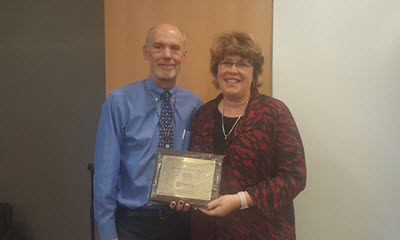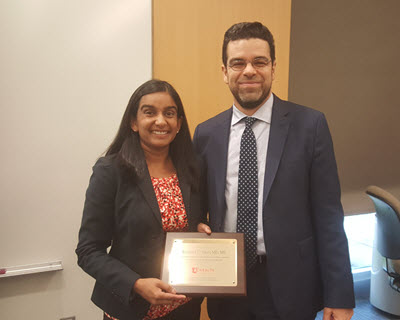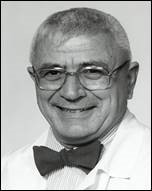In conjunction with the School of Medicine Alumni Weekend, the Department of Internal Medicine and Society of Supporting Leadership in Internal Medicine (SSLIM) hosted a benefactor event on October 13, 2017. SSLIM’s mission invests in tomorrow’s leaders today by supporting recruiting, faculty support, and scholarship. SSLIM provides an opportunity to insure the University of Utah’s Department of Internal Medicine continues to thrive. This year's visiting lecturer was sponsored by the Attillo Renzetti Endowed Lectureship in Pulmonary Medicine. The Renzetti Lectureship was established to memorialize the contribution of Dr. Renzetti. The SSLIM Scholar Lecturer was Rashmee U. Shah, MD, MS.
Bethany B. Moore, PhD
Presented on "Innate and Adaptive Immunity and Lung Complications Post-Stem Cell Transplant"

Bethany Moore completed undergraduate studies at the University of Texas at Austin before earning her PhD in Immunology from the University of Texas Southwestern Medical School. She then completed post-doctoral studies at U.T. Southwestern and Stanford University before joining the faculty at the University of Michigan in 1997. She has risen through the ranks and is now the Galen B. Toews, M.D. Collegiate Professor of Internal Medicine, Professor of Microbiology and Immunology and the Director of the Graduate Program in Immunology. Her research interests focus on the pathogenesis of lung fibrosis and the regulation of innate and adaptive immunity following stem cell transplant.
Although hematopoietic stem cell therapy is a potentially curative option for a number of genetic disorders and malignancies, its usefulness is limited by serious complications. Up to 60% of stem cell transplant patients will develop pulmonary complications including infectious and “non-infectious” disorders. Using murine models of bone marrow transplant (BMT) and confirmatory studies in human cells, we have shown that alveolar macrophage and neutrophil dysfunction post-BMT result from over-production of prostaglandin E2 (PGE2). Our studies have defined how PGE2 is elevated and have shown that inhibition of PGE2 signaling can restore host defense against bacterial pathogens. In terms of anti-viral host defense, we have shown that defects in Notch signaling post-BMT drive T cell responses to herpesviral infections towards pathogeneic Th17 rather than protective Th1 phenotypes. BMT mice infected with gammaherpesvirus develop pneumonitis and fibrosis that mimics features of idiopathic pneumonia syndrome. Our murine and clinical studies now support a role for occult herpesviral infections as drivers of some “non-infectious” lung injuries post-transplant.
Rashmee U. Shah, MD, MS
Presented on “A Needle in the Haystack: The Quest for Knowledge in Big Data”

Rashmee U. Shah, MD MS is an Assistant Professor in Cardiovascular Medicine in the Department of Internal Medicine at the University of Utah School of Medicine. She has been on tenure track faculty at the University of Utah since 2014. Dr. Shah received her medical degree at the Tufts University School of Medicine, where she graduated with honors. She completed Internal Medicine Residency at Northwestern University and then went on to complete a postdoctoral fellowship and Master’s degree in Health Services Research at Stanford University. Dr. Shah completed her cardiology training at Cedars-Sinai Medical Center and the University of Pittsburgh.
Her clinical interests include echocardiography, acute cardiac care, and data and information systems to improve health care outcomes. Nationally, she chairs the Young Investigators Committee and is on the Leadership Council for the American Heart Association Council on Quality of Care and Outcomes Research. Cardiology Today recently named her a “NextGen Innovator.” She is the recipient of grant support from the National Heart, Lung, and Blood Institute and is focused on practical applications of data science. Specifically, she is developing a clinically useful tool for information extraction from the electronic health record, focused on patient safety.
The Attillo D. Renzetti, Jr., MD Honorary Endowed Lectureship

Attilio D. Renzetti Jr., MD was born in New York City in 1920, the youngest son of Attilio and Anna Renzetti, and married Mabel Woodruff in 1947. Dr. Renzetti was a 1944 graduate of Columbia University's College of Physicians and Surgeons in New York City and from 1947 – 1952, was an assistant and Chief Resident of Chest Disease at Bellevue Hospital, working under the guidance of Dr. J. Burns Amberson and in collaboration with Dr. André Cournand. Prior to this time, he served for two years as a Captain in the U.S. Army Medical Corps.
In 1952, Dr. Attilio Renzetti, along with Dr. John McClement, established the first Division of Pulmonary Diseases in the Department of Medicine at the University of Utah, located in the Fort Douglas Veterans Administration Hospital. In 1953, Dr. Renzetti left Utah, returning to New York to head the Pulmonary Section at the veteran’s hospital affiliated with the State University of New York at Syracuse. Dr. Renzetti was invited back to Utah in 1961 by Maxwell M. Wintrobe, MD, and accepted appointment as the Chief of the Pulmonary Division at the University of Utah, a position he held for nearly three decades. He was promoted to Professor of Medicine in 1967. His research focused on applied respiratory physiology, occupational lung diseases and epidemiology of Chronic Obstructive Pulmonary Disease (COPD). Dr. Renzetti has been published inmany journals and his research is widely known. He served as President of the American Thoracic Society and Director of the American Lung Association.
The Attilio D. Renzetti, Jr., MD Honorary Endowed Lectureship was initially established from gifts received from friends and associates of Dr. Renzetti, in his honor, to enhance the understanding of pulmonary related diseases.